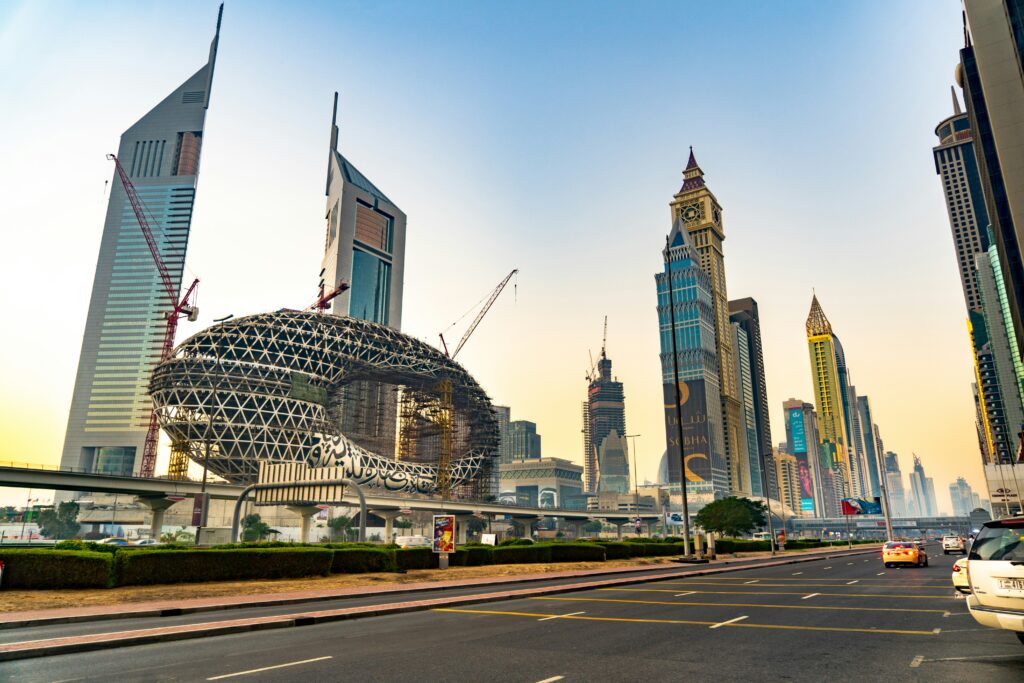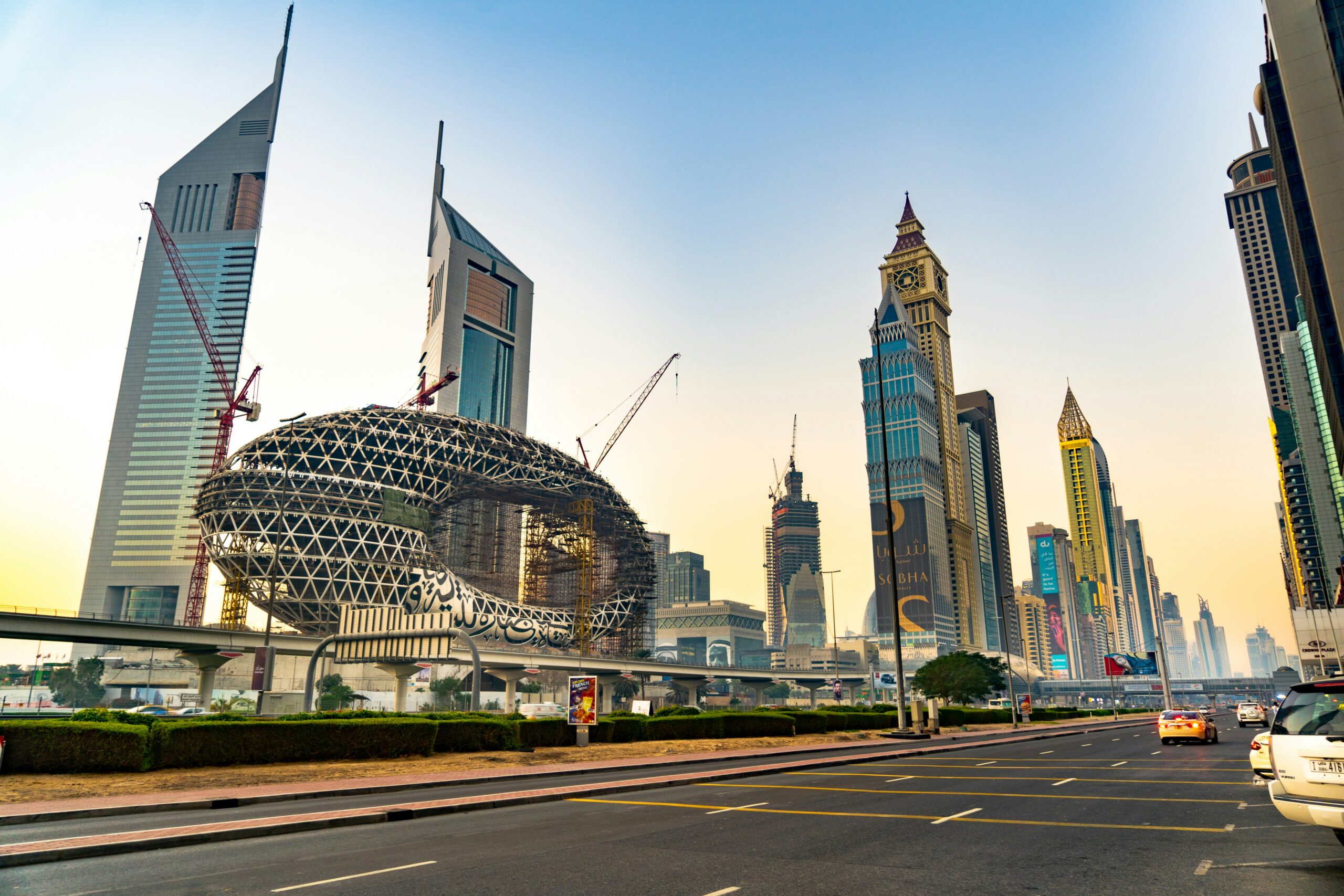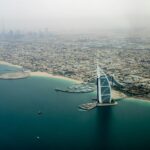Dubai has firmly established itself as a prominent global investment hub, attracting attention for its dynamic economy and potential for significant returns. Its strategic positioning, coupled with forward-thinking economic policies, has created a fertile ground for investors seeking to capitalize on diverse opportunities. This guide aims to provide a detailed roadmap for navigating the Dubai investment market effectively and maximizing potential returns. Ready to explore Dubai’s lucrative investment landscape? Let’s dive in!
Decoding the Dubai Investment Landscape: Why Now?
Dubai’s economic landscape is characterized by its strength and diversification, extending well beyond its traditional reliance on oil. Key sectors such as real estate, tourism, finance, and technology are significant contributors to its robust economy 1. The emirate’s commitment to future growth is further underscored by the Dubai D33 Economic Agenda, a strategic initiative designed to double Dubai’s GDP by 2033. This ambitious plan focuses on fostering innovation, attracting substantial foreign investment, and prioritizing the development of digital assets and fintech industries 2. The D33 agenda demonstrates a long-term commitment to economic expansion and diversification, making Dubai an appealing destination for investors seeking sustained opportunities. The government’s clear vision and strategic initiatives provide a stable and predictable environment, which can be particularly reassuring for those looking for long-term investments. This proactive approach to economic development distinguishes Dubai from markets that may be more susceptible to the volatility of single industries.
Beyond its economic strengths, Dubai holds significant strategic advantages as an investment hub. Its geographical location serves as a crucial link between the East and West, facilitating seamless trade and investment flows across continents 2. Complementing this strategic position is Dubai’s world-class infrastructure, which includes state-of-the-art airports, bustling ports, and the prestigious Dubai International Financial Centre (DIFC) 3. This advanced infrastructure network effectively supports a wide range of business and investment activities. Furthermore, Dubai boasts a favorable regulatory environment designed to attract international investors. This includes attractive tax benefits and streamlined processes for setting up businesses 3. The combination of Dubai’s strategic location, advanced infrastructure, and welcoming regulations creates a powerful synergy, making it a compelling choice for both regional and global investors. The ease of conducting business reduces potential operational challenges, while the robust infrastructure ensures the efficient movement of goods and capital. This comprehensive approach provides Dubai with a distinct competitive advantage in the global investment arena.
Laying the Foundation: Keyword Research for Investment Success in Dubai
Effective navigation of the Dubai investment market begins with understanding the language used by those seeking investment opportunities. Keyword research plays a crucial role in identifying the terms and phrases that potential investors use when searching online. This understanding helps in tailoring content to meet their needs and improving its visibility in search engine results.
Based on analysis of online search trends, the primary keywords for this topic are “Dubai investment” and “investing in Dubai” 1. These broad terms attract a wide audience interested in various aspects of investing in the emirate. While these keywords have high search volumes, they also face significant competition.
To target more specific segments of the audience, secondary keywords are essential. These include terms like “Dubai real estate investment,” “Dubai stock market,” “high-return investments Dubai,” “Dubai property market,” “apartments for rent in Dubai,” “houses for sale in Dubai,” “luxury real estate Dubai,” and “off-plan projects in Dubai” 6. Additionally, location-specific keywords such as “investing in Dubai Marina” or “investing in Downtown Dubai” can further refine the target audience. Long-tail keywords, which are longer and more specific phrases like “how to invest in Dubai stock market for beginners,” cater to niche audiences with very specific queries 8. Understanding the user intent behind these keywords is also crucial. For example, someone searching for “what is the Dubai stock market” has informational intent, while someone searching for “buy property in Dubai Marina” has transactional intent 5.
The prevalence of real estate-related keywords in the research indicates a significant interest in property investments within Dubai 6. This suggests a mature and active property market that attracts both individual and institutional investors. General investment inquiries and searches related to the Dubai stock market also demonstrate a broader interest in the emirate’s financial landscape. The frequency and specificity of real estate keywords suggest that the property market is a central pillar of Dubai’s overall investment appeal.
Exploring the Spectrum of Dubai Investment Options
Dubai offers a diverse range of investment options to suit various financial goals and risk appetites. Understanding these options is crucial for developing a successful investment strategy.
Real Estate: A Cornerstone of Dubai’s Investment Portfolio
Real estate has long been a cornerstone of Dubai’s investment landscape, attracting significant interest from both local and international investors. Historically, Dubai has offered high rental yields compared to many other major global cities, often ranging from 6% to 9% 14. Areas such as Jumeirah Village Circle (JVC) and Dubai Investments Park (DIP) are known for their particularly attractive rental returns 13. Beyond rental income, Dubai’s real estate market also presents opportunities for capital appreciation, especially in the luxury sector and in rapidly developing areas like Meydan 14. The prices of luxury properties in prime locations such as Palm Jumeirah and Downtown Dubai have seen significant increases 14.
Despite the potential for high returns, investing in Dubai real estate also involves certain risks. Market fluctuations can impact property values, and the initial costs associated with purchasing property can be substantial 18. Additionally, real estate can be a relatively illiquid asset, meaning it may not be easy to sell quickly if needed 18. The suitability of different types of properties varies depending on the investor’s profile. For instance, apartments and townhouses in areas like JVC might be attractive to investors seeking consistent rental income, while luxury villas in Downtown Dubai could appeal to those prioritizing long-term capital growth 6. Off-plan projects, where properties are purchased before completion, can offer potential for higher returns but also carry greater risks related to development timelines and market conditions.
Several areas in Dubai stand out as key investment destinations. Dubai Marina is renowned for its luxurious waterfront lifestyle and high demand from both tourists and expatriates 13. Jumeirah Village Circle (JVC) continues to be popular for its affordability and high rental yields 13. Downtown Dubai, home to iconic landmarks like the Burj Khalifa, is synonymous with luxury and offers significant potential for capital appreciation 13. Business Bay is rapidly evolving into a major commercial and residential hub, attracting both businesses and residents 13. Dubai Hills Estate is favored for its green spaces, luxury villas, and golf course living 14. Emerging hotspots like Meydan, Dubai Creek Harbour, and Dubai South are also garnering attention for their future growth potential and large-scale development projects 14.
While luxury properties in prime areas often provide prestige and the potential for substantial capital appreciation, more affordable areas frequently offer higher rental yields, catering to different investment objectives. This dynamic allows investors to align their choices with their primary goal, whether it’s long-term growth or a consistent stream of income. The availability of both types of investment opportunities enhances Dubai’s attractiveness to a diverse range of investors.
Top Dubai Real Estate Areas by Rental Yield
| Area | Average Rental Yield (%) | Key Property Types |
| Jumeirah Village Circle (JVC) | 7.0 – 8.1 | Apartments, Townhouses, Villas |
| Dubai Investments Park (DIP) | 9.0 – 11.0 | Affordable Apartments |
| Dubai Marina | 6.5 – 7.3 | Apartments, Penthouses, Villas |
| Business Bay | 6.3 – 6.9 | High-rise Apartments, Office Spaces, Retail |
| Dubai Sports City | 7.3 | Apartments, Townhouses, Villas |
| Arjan | 8.5 | Apartments |
| Downtown Dubai | 5.2 – 6.5 | Serviced Apartments, Luxury Condos, Penthouses |
Note: These figures are based on data from various sources 13 and may vary depending on specific property and market conditions.
This table offers a comparative overview of rental yields in different Dubai areas, a key factor for investors seeking income-generating properties.
Navigating the Dubai Stock Market: Opportunities and Outlook
The Dubai stock market provides another avenue for investment through the Dubai Financial Market (DFM) and Nasdaq Dubai 20. The DFM primarily lists equities of companies across various sectors, including financials, real estate, industrials, and consumer discretionary 22. Nasdaq Dubai, on the other hand, offers a platform for trading equities, derivatives, REITs (Real Estate Investment Trusts), and fixed-income instruments like bonds and Sukuk 20.
The outlook for the Dubai bourse in 2025 is generally positive, although experts anticipate a more subdued performance compared to the strong gains experienced in 2024 25. Factors such as global oil prices and overall economic conditions are expected to influence market sentiment 25. Despite the potential for slower growth, certain sectors like infrastructure, logistics, and education are projected to continue demonstrating robust earnings growth 25. Investors can participate in the Dubai stock market through direct investment in individual equities, or by investing in Exchange Traded Funds (ETFs) and Real Estate Investment Trusts (REITs) that are listed on the exchanges 20.
While the Dubai stock market has demonstrated significant growth potential, a more measured approach may be advisable in 2025. Investors might consider focusing on specific sectors that show strong fundamentals and consistent performance, rather than anticipating broad market rallies. Thorough due diligence and a selective investment strategy will be key to navigating the market effectively.
Diversifying with Bonds and Sukuk in Dubai
Bonds and Sukuk represent fixed-income investment options available in Dubai. Bonds are essentially debt instruments issued by governments or corporations to raise capital, while Sukuk are Sharia-compliant equivalents that adhere to Islamic finance principles 23. Compared to equities, bonds typically offer lower risk and more stable returns, making them a valuable component of a diversified investment portfolio for investors seeking income and capital preservation 29. Examples of bonds and Sukuk available for trading can be found on Nasdaq Dubai 23. These instruments provide a predictable income stream through periodic interest payments (or profit distributions for Sukuk) and can help balance the potential volatility of higher-risk assets like stocks.
Investing in Mutual Funds and ETFs: A Balanced Approach
Mutual funds and Exchange Traded Funds (ETFs) offer investors a way to diversify their investments across a range of assets without the need for individual stock or bond selection 18. These investment vehicles pool money from multiple investors and are managed by professional fund managers. Mutual funds can invest in various asset classes, including equities, fixed income, real estate, and money market instruments. ETFs, on the other hand, typically track a specific index, sector, or basket of assets, offering diversification within a single investment product 30. In the UAE, investors can find different types of mutual funds, such as equity funds, fixed income funds, real estate investment funds, index funds, and Islamic funds 29. Both mutual funds and ETFs can be suitable for both novice and experienced investors, providing access to diversified portfolios and professional management with relatively low investment minimums 30. This accessibility makes it easier for a broader range of investors to participate in the Dubai market and achieve diversification without extensive capital or specialized knowledge.
Exploring Business Ventures and Alternative Investments
Beyond traditional asset classes, Dubai also presents opportunities for investing in or starting business ventures, leveraging its favorable business environment 2. The emirate’s pro-business policies and strategic location make it an attractive hub for entrepreneurs and investors looking to establish or expand their operations. Additionally, alternative investments such as precious metals like gold 18, cryptocurrencies 18, and private equity 29 are also available. Gold is often considered a safe-haven asset, particularly during times of economic uncertainty. Cryptocurrencies offer the potential for high returns but come with significant volatility and risk. Private equity involves investing in companies not listed on public stock exchanges and typically requires substantial capital and a long-term investment horizon. While these options may offer the potential for high returns, they often involve higher risks and require specialized knowledge, making them generally more suitable for experienced investors with a higher risk tolerance. Thorough research and a clear understanding of the associated risks are essential before considering these alternative investment avenues.
Smart Strategies for Maximizing Returns and Mitigating Risks
Navigating the Dubai investment market successfully requires a strategic approach focused on maximizing returns while effectively managing potential risks. Several key strategies can help investors achieve their financial goals.
Diversification is a fundamental principle of investing that involves spreading investments across different asset classes, sectors, and geographical regions 18. By diversifying, investors can reduce the impact of any single investment performing poorly on their overall portfolio. For example, an investor might allocate funds to real estate, stocks, and bonds to balance potential gains and losses across different market conditions.
Due diligence is another critical step before making any investment decisions. This involves conducting thorough research and analysis on the investment opportunity, including evaluating the historical performance, financial health, and reputation of the company or project. For real estate, due diligence might involve inspecting the property, reviewing market trends, and understanding the developer’s track record. For stocks, it would entail analyzing the company’s financial statements, industry position, and future growth prospects.
A thorough understanding of local regulations is also essential for investing in Dubai. Familiarizing oneself with the specific investment laws, rules, and tax implications in the emirate can help investors avoid potential legal or financial pitfalls 4. This includes understanding property ownership laws, regulations governing financial markets, and any applicable taxes on investment income or capital gains.Finally, seeking guidance from qualified financial advisors who have expertise in the Dubai investment market can be invaluable. These professionals can provide personalized investment strategies tailored to individual financial goals and risk tolerance, as well as help navigate the complexities of the local market. They can offer insights into market trends, identify potential opportunities, and assist with managing investment portfolios effectively.





